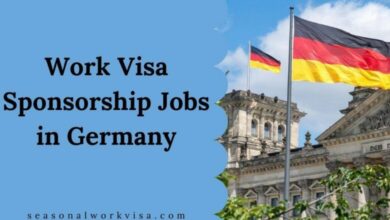How to Get U.S. Residency by Starting a Business as an African Investor

For many ambitious African entrepreneurs, the dream of expanding into the United States is more than just about business—it’s about access to global markets, better opportunities, and a higher quality of life. But how can a business-minded African secure legal residency in the U.S. through entrepreneurship?
The answer lies in the E-2 Treaty Investor Visa, a powerful—but often overlooked—pathway to legally live in the U.S. by starting or buying a business.
What Is the E-2 Visa and Why Is It Important for Africans?
The E-2 Treaty Investor Visa allows nationals of certain countries to live and work in the United States by investing in and managing a business. It’s designed specifically for investors and entrepreneurs who want to enter the U.S. market and actively direct a business enterprise.
Unlike traditional work visas that require a U.S. employer sponsor, the E-2 gives you full control—you own the business, run the business, and renew the visa indefinitely as long as it remains viable.
Which African Countries Qualify for the E-2 Visa?
Only citizens of countries with a U.S. trade and investment treaty are eligible for the E-2 visa. Fortunately, several African nations qualify:
-
Eligible African Countries include:
-
Egypt
-
Kenya
-
Liberia
-
Morocco
-
Tunisia
-
Ethiopia
-
Senegal
-
Cameroon
-
Congo (Brazzaville)
-
⚠️ Not eligible (directly): Nigeria, Ghana, South Africa, Rwanda, Uganda, Zimbabwe. However, citizens of these countries can still qualify for an E-2 visa by obtaining dual citizenship from an E-2 treaty country like Grenada or Turkey, both of which offer fast-track citizenship programs.
How Much Do You Need to Invest?
There’s no official minimum, but your investment must be considered “substantial” based on the business type and size. Generally, most successful E-2 applicants invest between $100,000 and $200,000 or more.
Popular E-2 Business Ideas:
-
Restaurant or café
-
Logistics or delivery service
-
Beauty salon or spa
-
Tech or digital marketing agency
-
Import/export business
-
African specialty grocery store or boutique
Key Requirements for the E-2 Visa
To qualify, you must:
-
Be a citizen of an E-2 treaty country
-
Invest a substantial amount in a real and operating U.S. business
-
Be actively involved in directing and developing the business
-
Show that your business will create jobs and contribute to the U.S. economy
-
Put your investment at risk (meaning the money is already spent or legally committed)
Step-by-Step Guide for African Entrepreneurs
1. Check Your Citizenship Status
-
If you’re not from a treaty country, consider applying for dual citizenship in an E-2 country like Grenada.
2. Choose a Strong Business Model
-
Focus on industries that meet U.S. demand and are scalable.
3. Write a Professional Business Plan
-
Include financial projections, staffing plans, operational strategy, and market analysis. This is crucial for your visa interview.
4. Establish Your U.S. Business Entity
-
Register your LLC or corporation, open a U.S. bank account, and secure a lease or property.
5. Invest Your Capital
-
You must show that funds are committed to the business (equipment purchases, leases, inventory, etc.).
6. Apply for the Visa
-
Submit Form DS-160 and DS-156E and schedule your visa interview at the U.S. Embassy in your country or region.
Can the E-2 Visa Lead to a Green Card?
While the E-2 visa does not grant a green card automatically, many African investors use it as a stepping stone to permanent U.S. residency through:
-
EB-5 Visa: Investing $800,000+ in a job-creating project
-
L-1 Visa to EB-1C: Expanding a foreign business to the U.S.
-
U.S. Employer Sponsorship
-
Marriage to a U.S. citizen
With the right strategy and growth plan, E-2 investors often transition to long-term residency in a few years.
Final Thoughts: Why the E-2 Visa Is a Game-Changer for African Entrepreneurs
If you’re an African businessperson looking to expand internationally, the E-2 visa offers a unique opportunity to live and work in the U.S. while controlling your own business. It’s flexible, renewable, and far more accessible than many other immigration paths—especially if you hold or can obtain citizenship in a treaty country.
The key is planning: choose the right business, make a solid investment, and work with professionals to guide your application. Your dream of doing business—and living—in the U.S. may be closer than you think.
Need help getting started?
We can assist with:
-
Business planning for E-2
-
Investment structuring
-
Dual citizenship routes
-
Application support
Source: http://thepressradio.com





